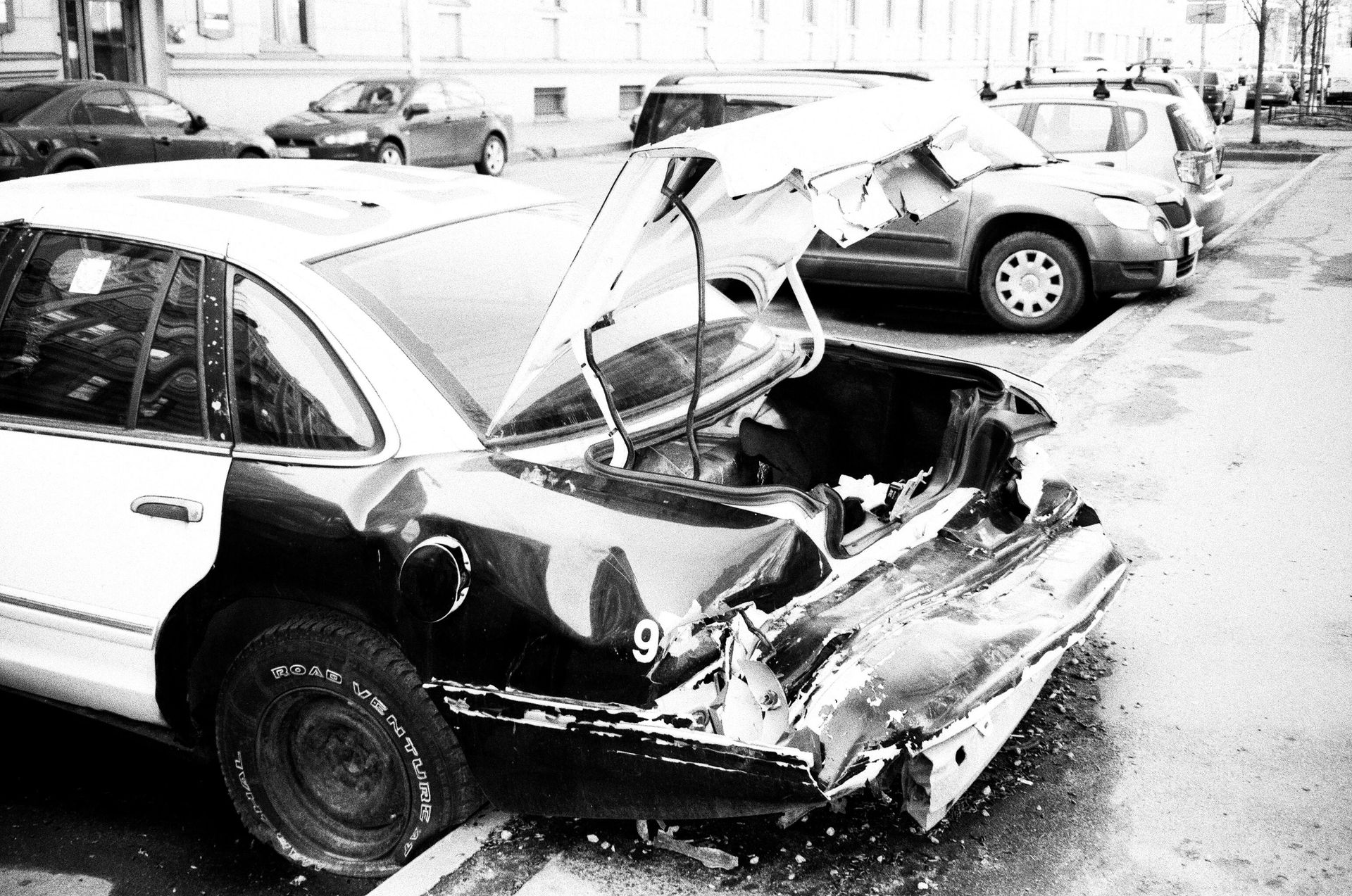Fight Back: The Top 10 Car Accident Claim Mistakes to Avoid in Philadelphia
A car accident on the bustling streets of Philadelphia can happen in a flash. One moment you are navigating traffic on the Roosevelt Boulevard or merging onto the I-76 Schuylkill Expressway, and the next you are surrounded by the jarring sound of crunching metal and shattering glass. In the chaotic moments and stressful days that follow, it is incredibly easy to make critical mistakes—errors that can jeopardize your physical recovery, your financial stability, and your legal right to fair compensation.
Insurance companies have teams of adjusters and lawyers whose primary job is to protect their profits by minimizing or denying claims. They count on you being disoriented, uninformed, and willing to accept a quick, lowball offer.
This is not a battle you should fight alone. Michael A. Walker, the award-winning Founding and Principal Attorney of The Walker Firm, has established himself as one of Philadelphia's top-rated personal injury attorneys by empowering victims to fight back. To protect yourself and your family, it is crucial to avoid these top 10 car accident claim mistakes.
1. Not Seeking Immediate Medical Attention
The Mistake: After a collision, adrenaline can mask serious pain. You might feel "shaken up" but believe you are uninjured. You decide to go home and "wait and see" how you feel tomorrow, skipping a trip to the ER or an urgent care center.
Why It's a Mistake: This delay is one of the most damaging things you can do to your claim. Insurance adjusters will use this "gap in treatment" to argue that your injuries weren't caused by the accident. They will suggest that if you were truly hurt, you would have sought immediate medical help. They may even claim your injuries occurred sometime between the accident and your eventual doctor's visit.
What to Do Instead: Always get a medical evaluation as soon as possible after any car accident, even if you feel fine. Go to a hospital, urgent care clinic, or your primary care physician. This creates an official medical record that directly links your injuries to the date and time of the collision, creating a crucial piece of evidence that is difficult for insurers to dispute.
2. Admitting Fault or Apologizing at the Scene
The Mistake: In the confusion following a crash, it's a natural human instinct to be polite or apologetic. Saying something as simple as, “I’m so sorry, I didn’t see you,” can feel like the right thing to do.
Why It's a Mistake: Your words at the scene can be twisted and used against you. An apology can be misconstrued as a full admission of legal fault. The other driver, their passengers, and any witnesses can report your statement to the insurance company, which will use it to place blame on you and deny your claim. You may not have all the facts about what caused the crash; perhaps the other driver was speeding or ran a stop sign out of your view.
What to Do Instead: Be calm, be polite, but do not discuss fault. Exchange insurance and contact information as required. Check if everyone is okay. But do not apologize or accept blame. State only the facts when speaking to law enforcement. Let a thorough investigation by your attorney determine who was legally responsible.
3. Giving a Recorded Statement to the Other Driver's Insurer
The Mistake: An adjuster from the at-fault driver's insurance company will likely call you within days of the accident. They will be friendly, seem concerned, and ask if you can provide a recorded statement to "speed up the process." You agree, thinking it will help.
Why It's a Mistake: The other driver's insurance adjuster is not your friend. Their goal is to get you to say something on record that they can use to devalue or deny your claim. They are trained to ask leading questions designed to trip you up. They might ask, "How are you feeling today?" and if you politely respond, "I'm okay," they will note that you "admitted to being okay," regardless of the actual pain you're in.
What to Do Instead: You are under no legal obligation to provide a recorded statement to the opposing insurance company. Politely decline their request. The best response is to direct them to your legal counsel. Tell them, “My attorney will be in contact with you.” This protects you from their tactics and signals that you have a top-rated personal injury attorney ready to fight for you.
4. Underestimating the Impact of Your "Limited Tort" Selection
The Mistake: You remember trying to save money on your car insurance premiums, so you selected the "Limited Tort" option. Now, after your accident, you assume you cannot recover compensation for your pain and suffering.
Why It's a Mistake: This is one of the most significant and misunderstood aspects of Pennsylvania car accident law. While Limited Tort does restrict your ability to sue for non-economic damages (pain and suffering), the restriction is not absolute. There are several key exceptions that allow a Limited Tort victim to pursue a claim for pain and suffering as if they had Full Tort. These exceptions include suffering a "serious injury," being hit by a drunk driver, being in a vehicle registered outside of Pennsylvania, or the other driver intentionally causing harm, among others.
What to Do Instead: Never assume you don't have a case because you chose Limited Tort. The definition of a "serious injury" (a personal injury resulting in death, serious impairment of body function or permanent serious disfigurement) is complex and often a point of legal contention. An experienced Philadelphia attorney like Michael A. Walker knows how to analyze the facts of your case and fight to prove that you meet one of the crucial exceptions, unlocking your right to full and fair compensation.
5. Posting About the Accident on Social Media
The Mistake: You post pictures of your wrecked car on Instagram or vent about the accident on Facebook. Later, you post a photo of yourself smiling at a family barbecue, trying to maintain a sense of normalcy despite your pain.
Why It's a Mistake: Insurance companies hire investigators to scour your social media profiles for any evidence they can use against you. A photo of your car might reveal something you hadn’t considered. A post where you describe the accident could contradict your official statement. That photo of you smiling can be taken completely out of context and presented to a jury as "proof" that your injuries aren't as severe or life-altering as you claim.
What to Do Instead: Do not post anything about your accident, your injuries, or your recovery on any social media platform. Advise friends and family to refrain from posting pictures of you or tagging you. The safest course of action is to set your profiles to private and suspend all activity until your case is resolved.
6. Failing to Document Everything
The Mistake: You take a few quick photos of your car at the scene, but you don't document your injuries, keep track of your expenses, or note how the pain is affecting your daily life.
Why It's a Mistake: A personal injury claim is built on evidence. Without thorough documentation, it becomes your word against the insurance company's. A lack of evidence makes it harder to prove the full extent of your physical, financial, and emotional damages.
What to Do Instead: Become a meticulous record-keeper. At the scene, take extensive photos and videos of all vehicles, skid marks, road debris, traffic signals, and the surrounding area. Keep a detailed file of all medical bills, co-pays, and receipts for prescriptions. Document your lost wages with pay stubs and employer letters. Crucially, keep a daily pain journal, noting your pain levels, how your injuries impact your sleep and daily activities, and any appointments you attend. This detailed record is invaluable for demonstrating your suffering.
7. Waiting Too Long to Contact an Attorney
The Mistake: You decide to wait and see how bad your injuries are or try to negotiate with the insurance company yourself before "bothering" an attorney. Weeks or months go by.
Why It's a Mistake: Evidence disappears, and memories fade. In Pennsylvania, the statute of limitations for filing a personal injury lawsuit is two years from the date of the accident. While that sounds like a long time, building a strong case takes time. Waiting too long allows crucial evidence like surveillance footage to be erased and witnesses to become unreachable. It also gives the insurance company a significant head start in building a case against you.
What to Do Instead: Contact a qualified Philadelphia car accident attorney as soon as possible. The sooner you have The Walker Firm on your side, the sooner we can launch a full investigation, preserve critical evidence, and handle all communications with the insurance company, allowing you to focus on your recovery.
8. Accepting the First Settlement Offer
The Mistake: The insurance company offers you a quick check. It seems like a decent amount of money, and the idea of having the process over with is tempting, so you accept.
Why It's a Mistake: The first offer is almost always a lowball offer. Insurers make these offers hoping you are desperate for cash and unaware of the true value of your claim. This initial offer rarely accounts for future medical treatment, future lost wages, or the full extent of your pain and suffering. Once you accept a settlement and sign a release, you forfeit your right to seek any further compensation for that accident, even if your injuries turn out to be more severe than you realized.
What to Do Instead: Never accept a settlement offer without having it reviewed by an experienced personal injury attorney. We can accurately calculate the true, long-term value of your claim and will negotiate aggressively to ensure you don’t leave money on the table.
9. Not Reporting the Accident to the Police
The Mistake: The other driver is apologetic and suggests you handle things privately without involving the police, especially if the damage seems minor. You agree to avoid the hassle.
Why It's a Mistake: A police report is an official, unbiased record of the accident. It contains essential details, including the parties involved, witness information, a diagram of the scene, and often the officer's initial determination of fault. Without a police report, the other driver could later change their story or deny the accident even happened, making it incredibly difficult to prove your case.
What to Do Instead: Always call 911 and report the accident from the scene, especially if there are any injuries or if a vehicle needs to be towed. Cooperate fully with the responding officers.
10. Trying to Handle the Claim Alone
The Mistake: You believe your case is straightforward and that you can save money by handling the claim yourself without hiring an attorney.
Why It's a Mistake: This is the ultimate mistake that encompasses all the others. The personal injury claim process is a complex legal minefield. You will be up against a multi-billion dollar insurance industry that has engineered the system to work in its favor. You lack the legal knowledge, procedural experience, and resources to accurately value your claim, navigate Pennsylvania's tort laws, negotiate effectively, and, if necessary, litigate your case in court.
What to Do Instead: Level the playing field. Get a powerful advocate in your corner. Hiring a top-rated Philadelphia personal injury attorney like Michael A. Walker sends a clear message to the insurance company: you will not be bullied or taken advantage of. You are prepared to fight back and demand the full compensation you deserve.
Get The Award-Winning Representation You Deserve
Don't let a simple mistake derail your recovery. If you have been injured in a car accident in Philadelphia, your choice of attorney matters. Contact The Walker Firm today for a free, no-obligation consultation. Let us handle the legal complexities so you can focus on what's most important—healing.
Disclaimer: This blog post is intended for informational purposes only and does not constitute legal advice or create an attorney-client relationship. 1 Auto accident and insurance laws in Pennsylvania are complex and fact-specific. You should consult with a qualified Pennsylvania personal injury attorney regarding your particular situation. Contact The Walker Firm for personalized legal counsel.











